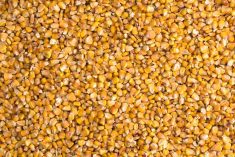MarketsFarm — Canadian malting barley acreage is expected to remain high in the coming year, mostly due to strong export demand.
Peter Watts, managing director of the Canadian Malting Barley Technical Center in Winnipeg, said tough harvest conditions were partially to blame for lowered malt barley output in 2019.
“We had a fairly lousy harvest, and we lost a lot of malting barley with the poor weather,” he said.
“We otherwise would’ve had a great quality crop, but as a result of the weather, we didn’t.”
Read Also

U.S. grains: Wheat futures rise on supply snags in top-exporter Russia
U.S. wheat futures closed higher on Thursday on concerns over the limited availability of supplies for export in Russia, analysts said.
Because some malting barley crops were left in fields to overwinter, some producers might have a bit of catching up to do in the spring before planting.
“Some producers will be looking for shorter-season crops, and barley is a good crop for that,” Watts said.
In 2019, malting barley acres totaled just over seven million acres, according to Watts. Acreage is expected to remain around seven million acres in the coming year, mostly due to strong export demand.
“We’ve had really good demand from China for the past three years,” Watts remarked, noting that in 2017 malt barley exports were nearly 1.5 million tonnes, a record high. Exports for 2019 are expected to total approximately one million tonnes.
“With all things being equal, we’d expect that to continue,” said Watts. However, it’s unclear to what degree China’s coronavirus will impact China’s economy and potential demand.
Several years of drought in Australia have also led to increased export demand for Canadian malting barley.
“They’re the world’s largest malting barley exporter, so with reduced supplies from Australia, Canada has been the beneficiary for markets like Japan and the Middle East,” Watts said, mentioning demand from Mexico had also increased.
— Marlo Glass reports for MarketsFarm, a Glacier FarmMedia division specializing in grain and commodity market analysis and reporting.
















